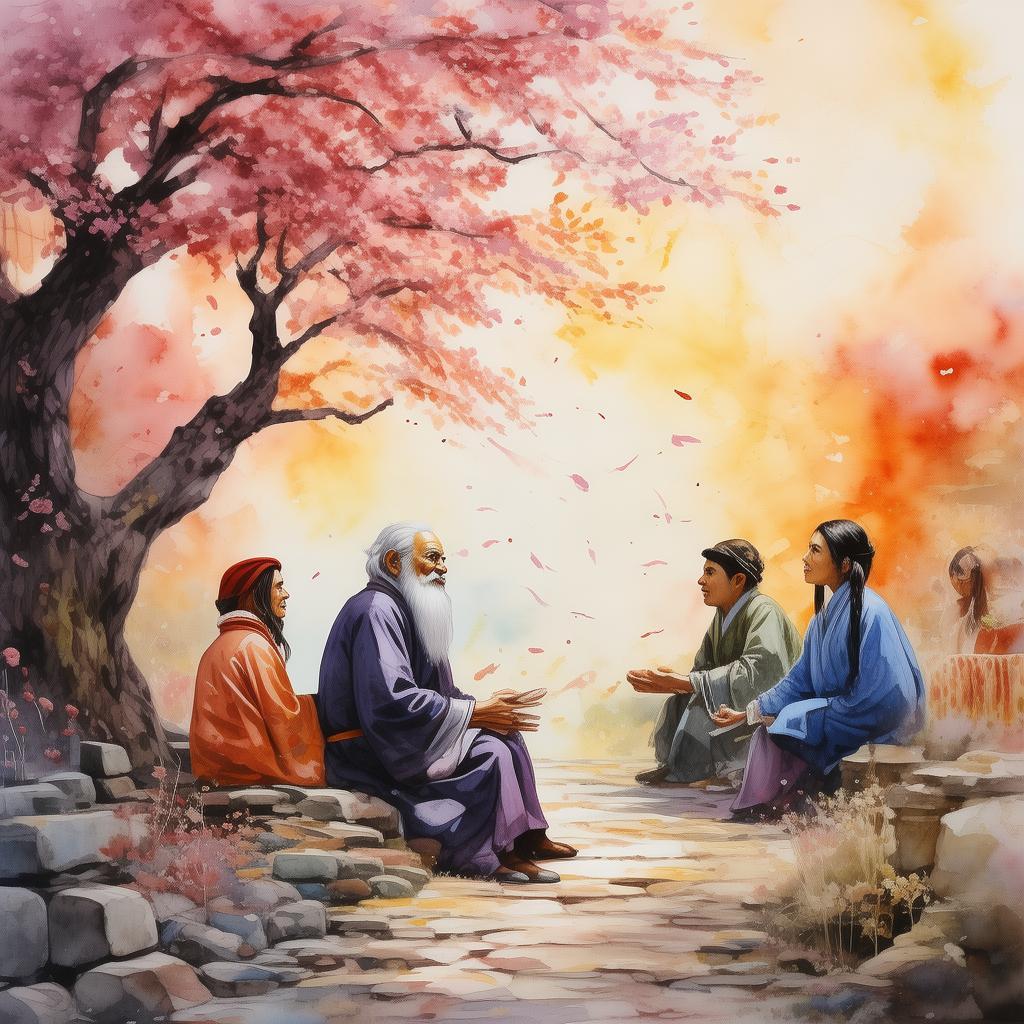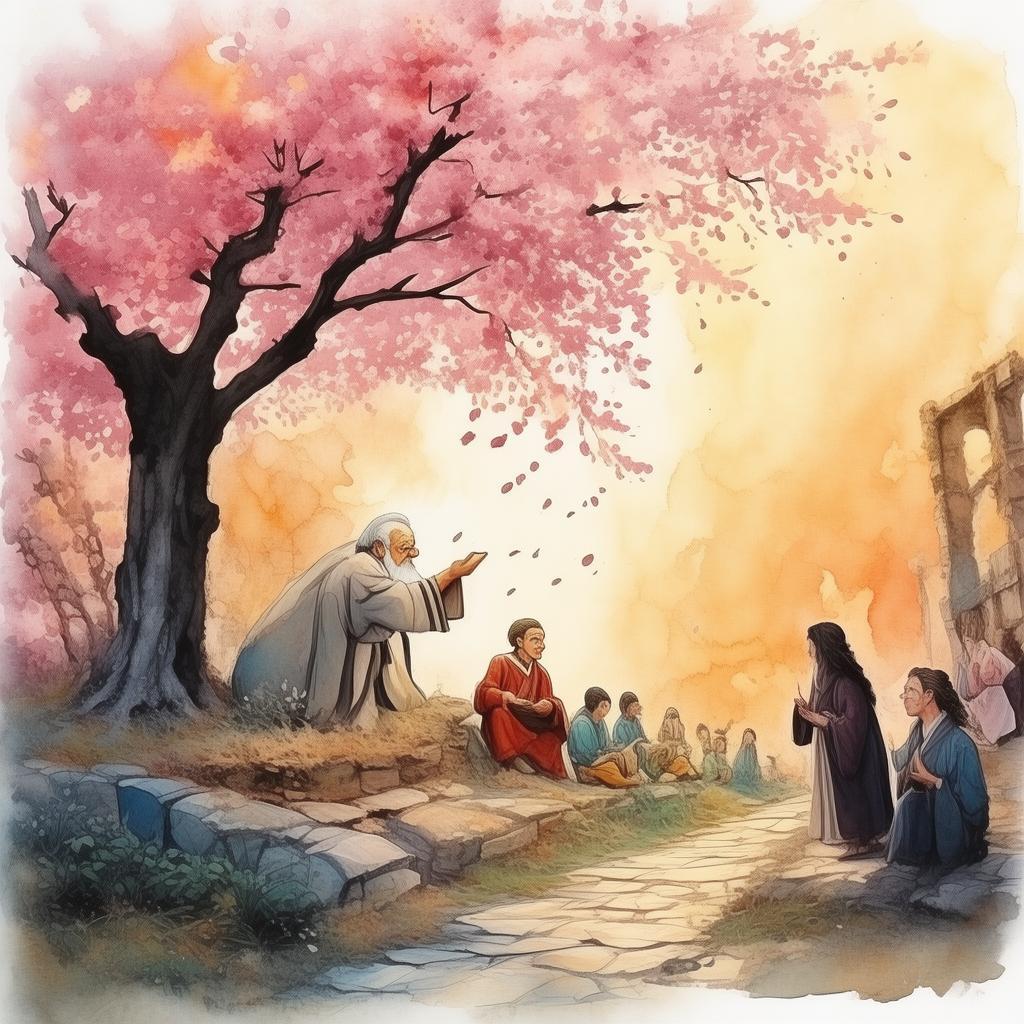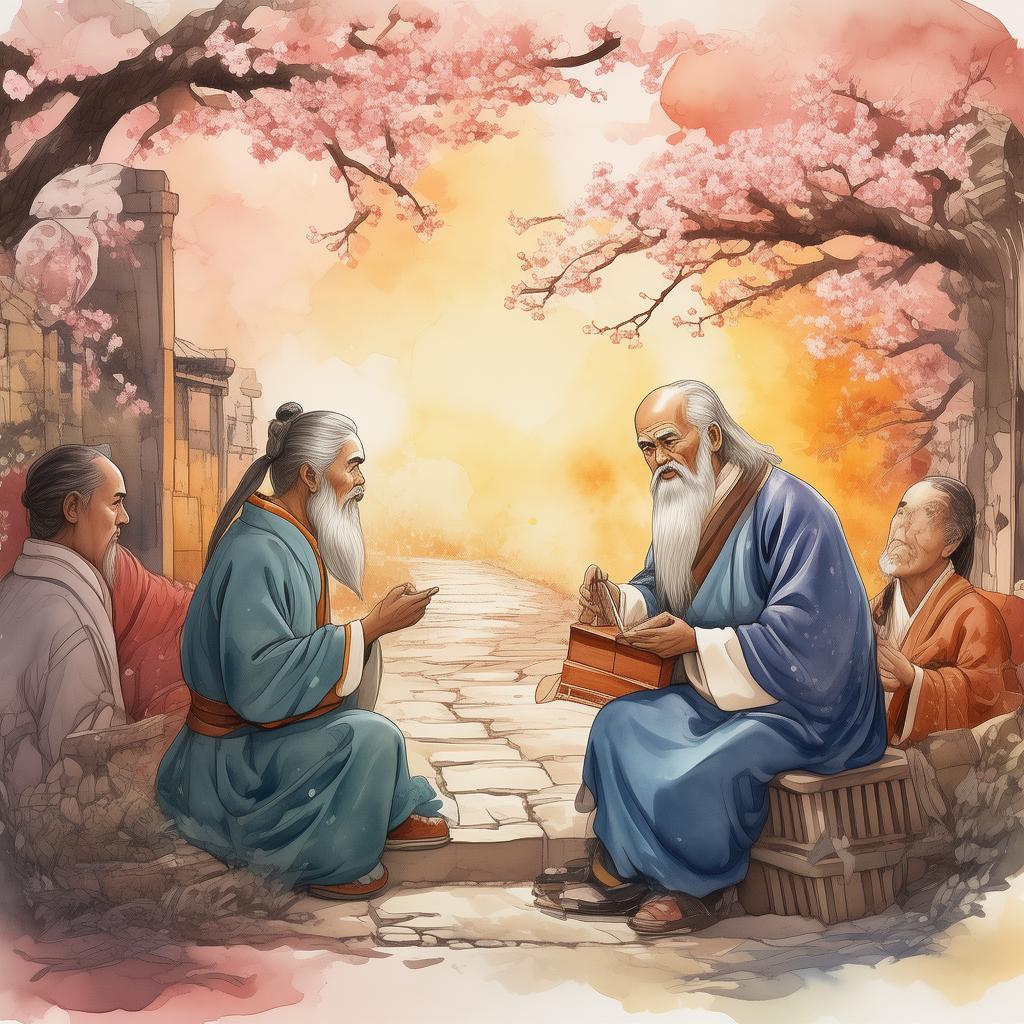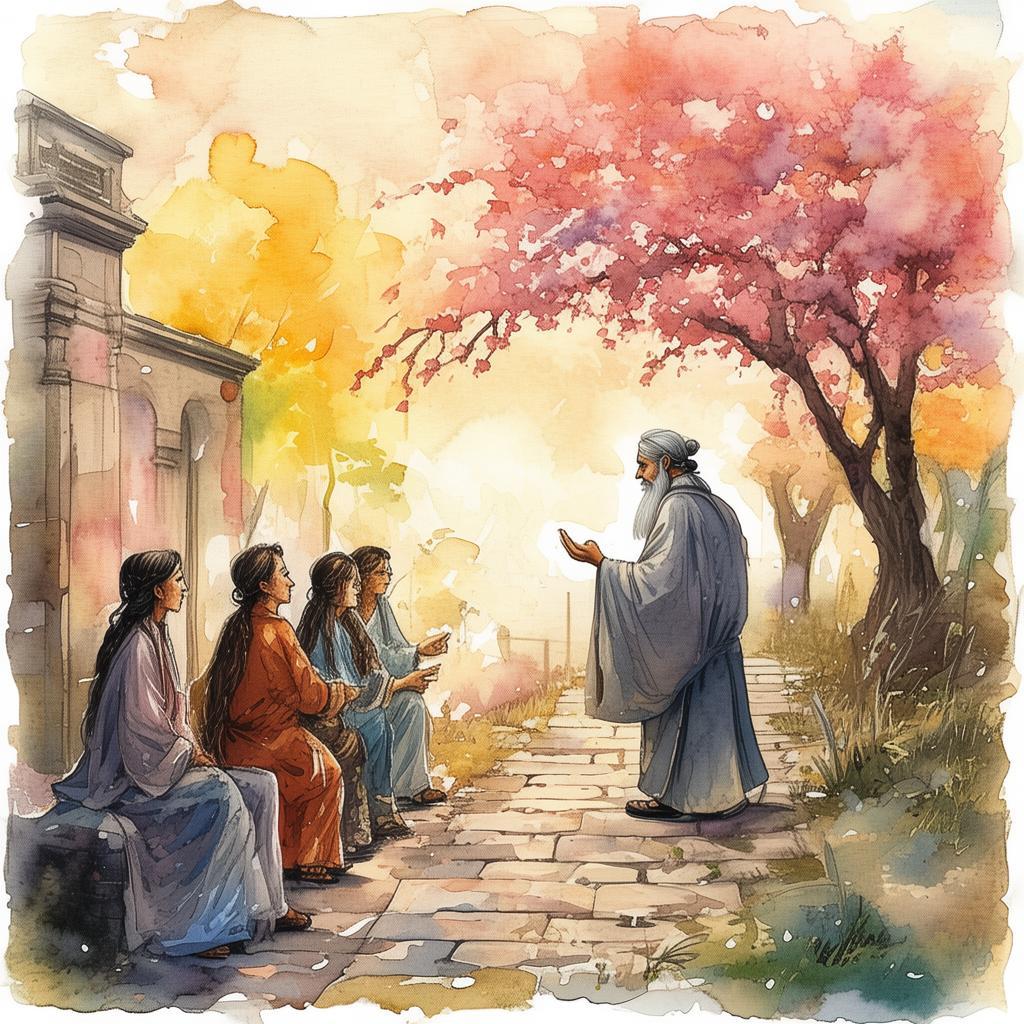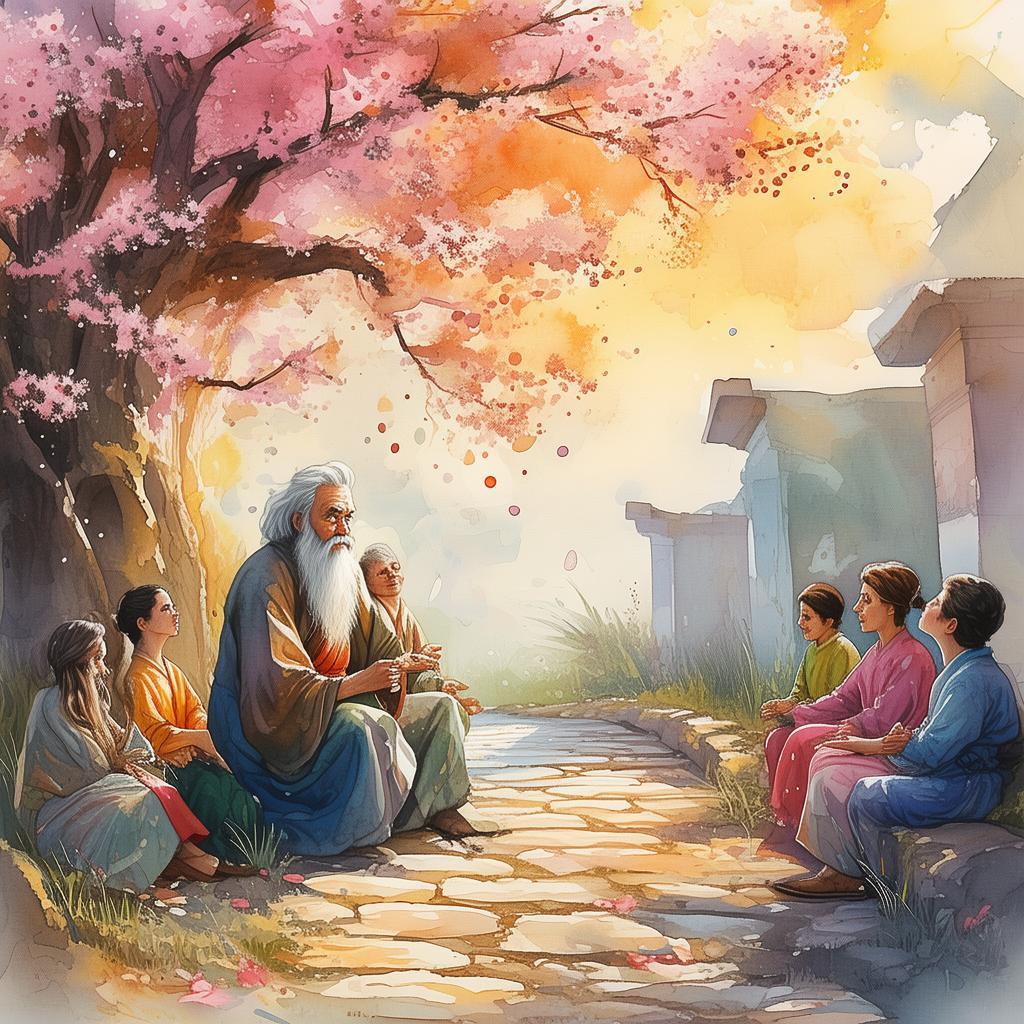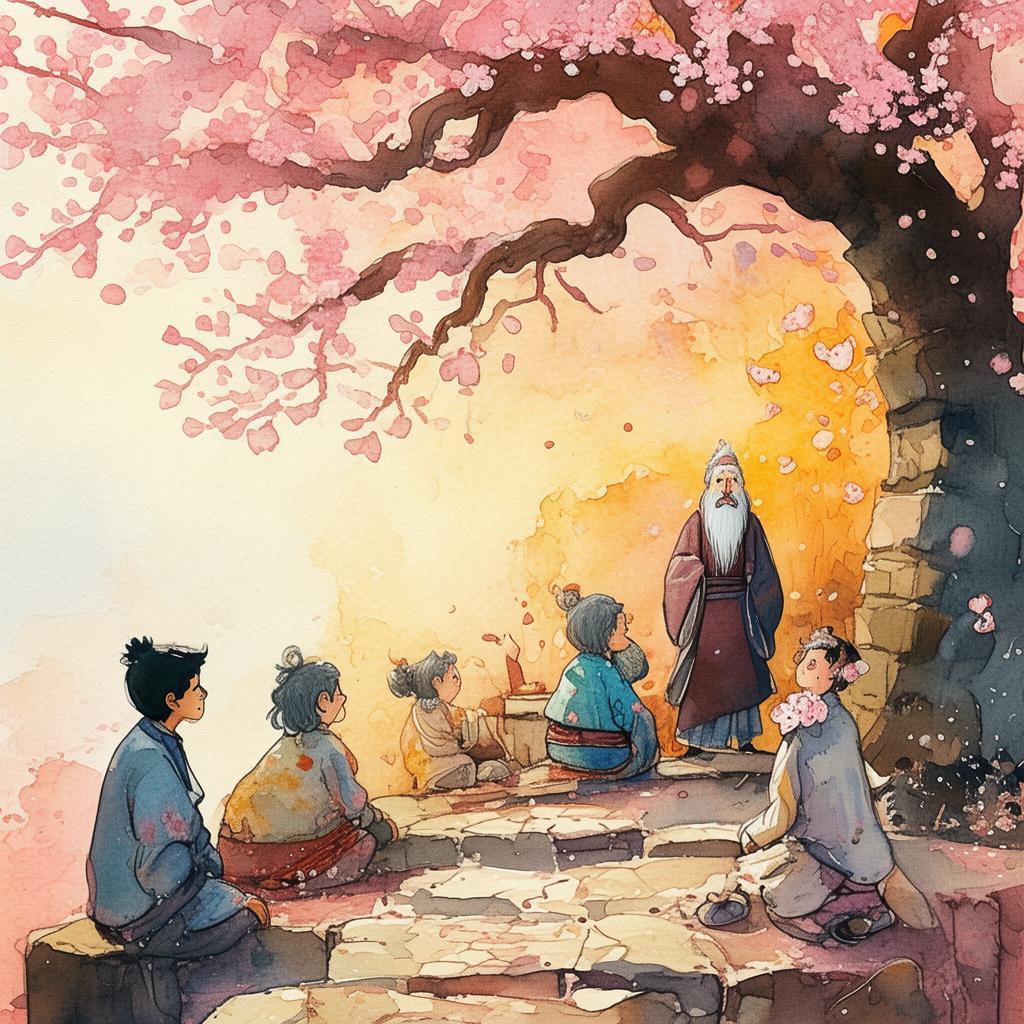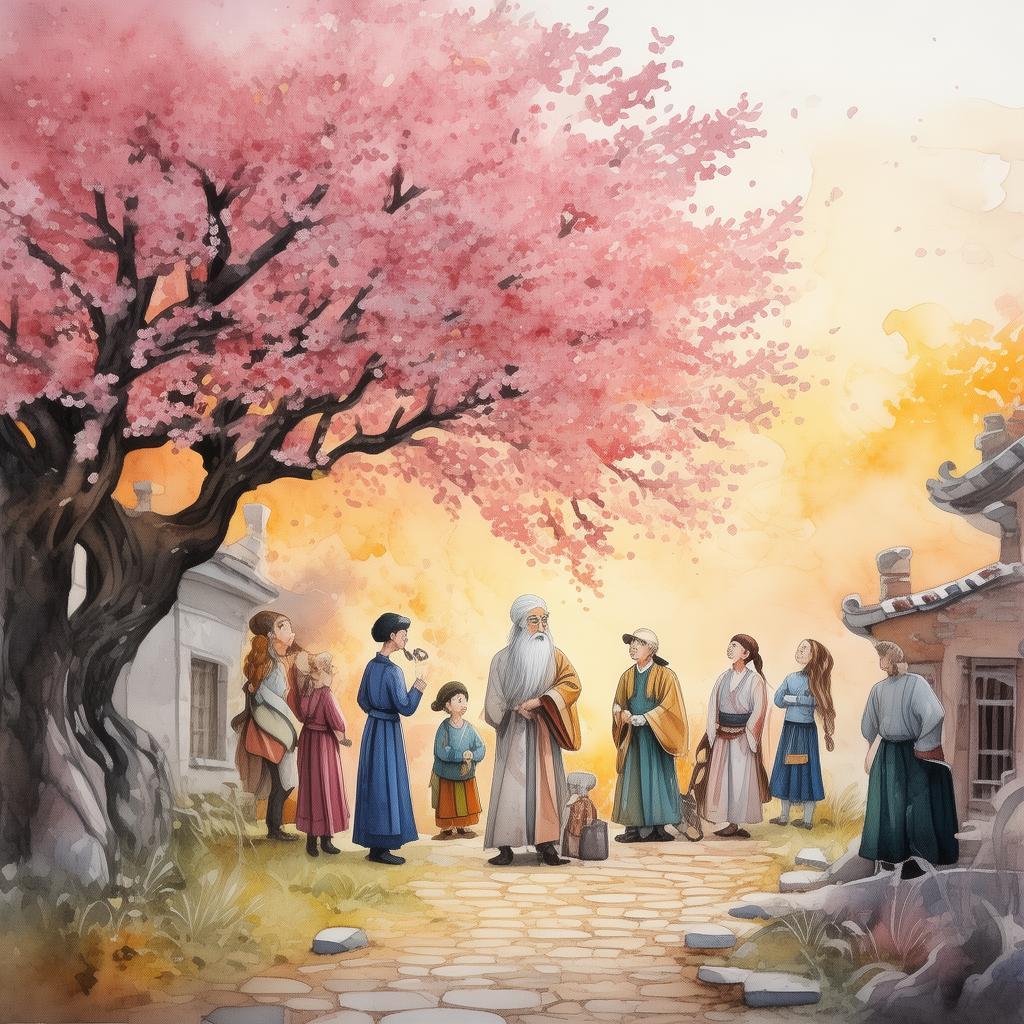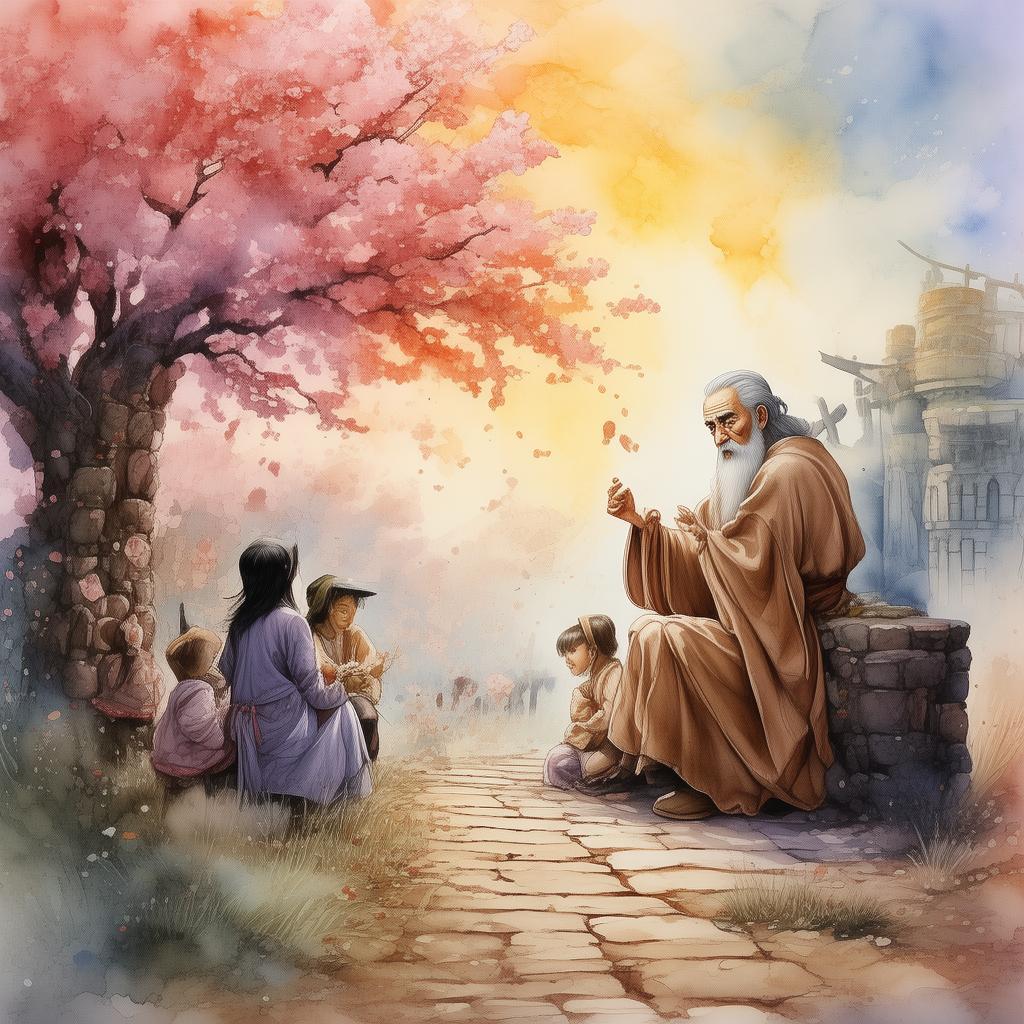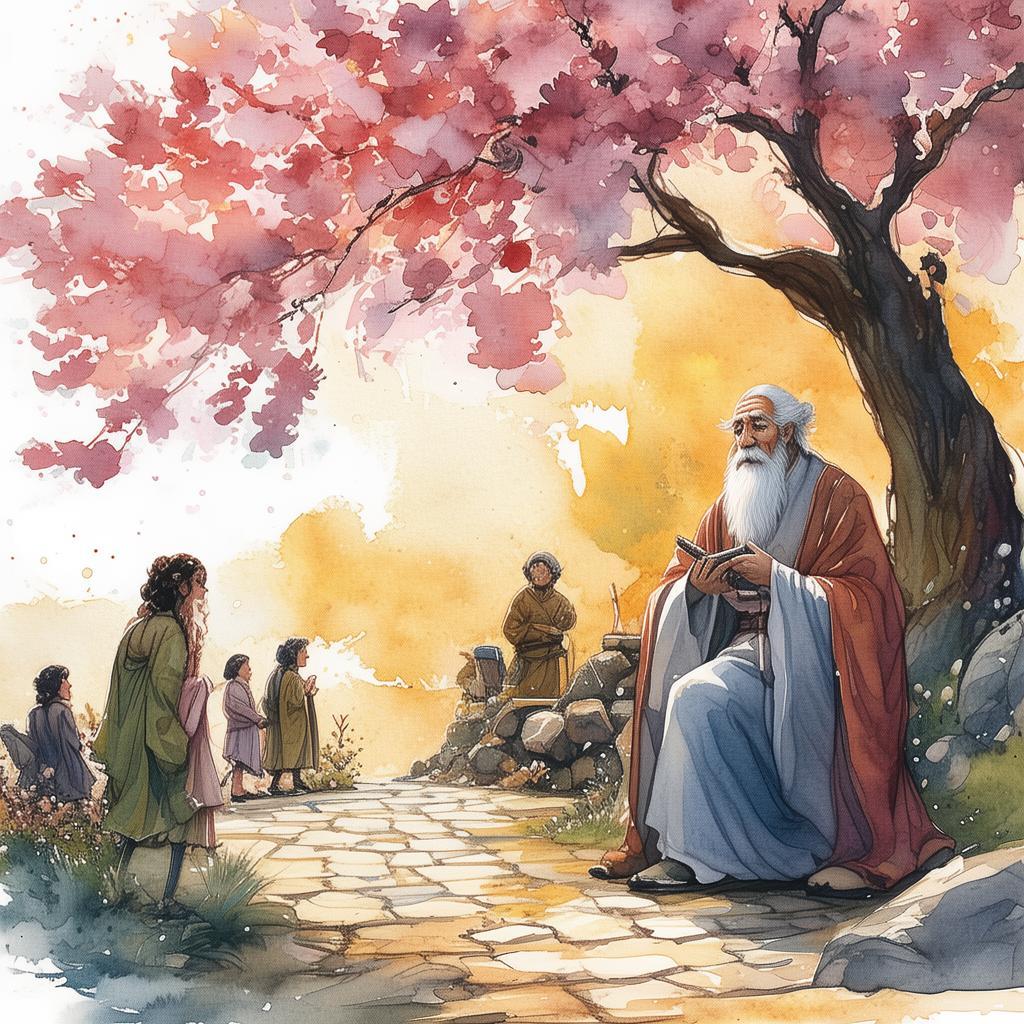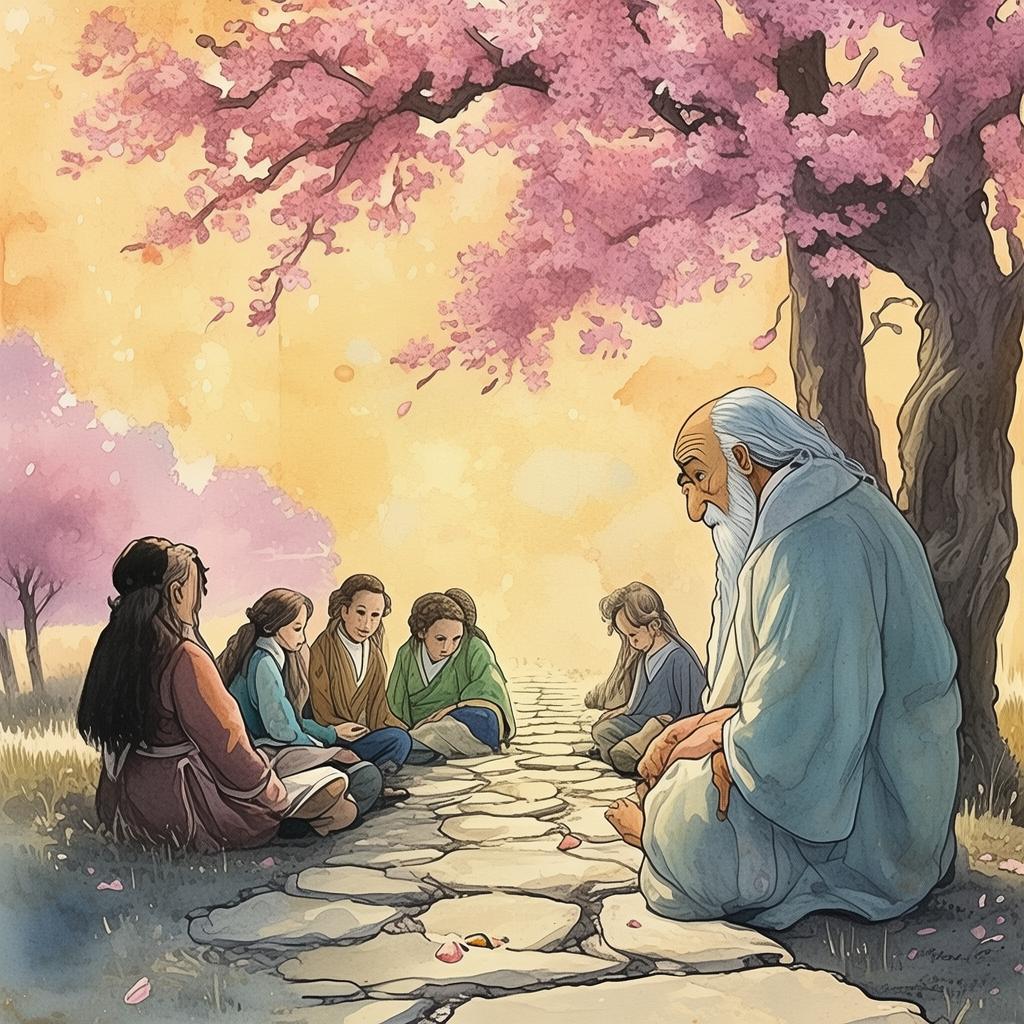The Paradox of Virtue: A Tale of Misplaced Merit
In the quaint village of Jinglong, there was a man named Ming, renowned for his unwavering virtue. He was the embodiment of the ancient maxim "A good deed is never lost; he who sows courtesy reaps friendship, and he who plants kindness gathers love." Ming was known for his generosity, kindness, and integrity, and his name was spoken with respect and admiration by all who knew him.
One fateful evening, a precious artifact, the Jade of Enlightenment, was stolen from the local temple. The village was in an uproar, and the blame fell swiftly upon Ming, who had been seen near the temple just before the theft. The evidence seemed irrefutable—a single footprint matched his, and a witness claimed to have seen him loitering suspiciously.
Ming, a man who had always lived by the principle of "doing good," found himself at the center of a storm of accusations. Despite his protestations of innocence, the village elders, led by the revered elder Hong, who was known for his stern sense of justice, were convinced of Ming's guilt. The elder Hong, who had a keen eye for virtue, had once declared, "True virtue is not shown in the absence of temptation but in the face of it." He now believed that Ming's fall from grace was proof of his hidden vices.
The village shunned Ming, casting him out as an outcast. He wandered the land, searching for proof of his innocence. Along his journey, Ming encountered the Antonym's Advocate, a mysterious figure who had a peculiar talent for reversing the common understanding of good and evil. The Advocate, intrigued by Ming's plight, agreed to help him, but only if Ming would help him uncover a hidden truth in the village.
The Advocate took Ming to an ancient, forgotten temple deep in the mountains. Inside, they found a cryptic scroll that spoke of a "Paradox of Virtue," a situation where a man's very goodness worked against him, causing him to be falsely accused. The scroll revealed that the footprint that had been used to frame Ming was a trick of shadows, a clever illusion that made it appear as though Ming's footprint matched the one at the scene of the crime.
Armed with this knowledge, Ming returned to the village, determined to clear his name. However, when he confronted the elder Hong, the elder's eyes, usually filled with the wisdom of virtue, seemed to flicker with something other than righteousness. Ming realized that the elder had been part of the scheme to frame him, believing that by removing the virtuous Ming from the village, the Jade of Enlightenment would be safeguarded.
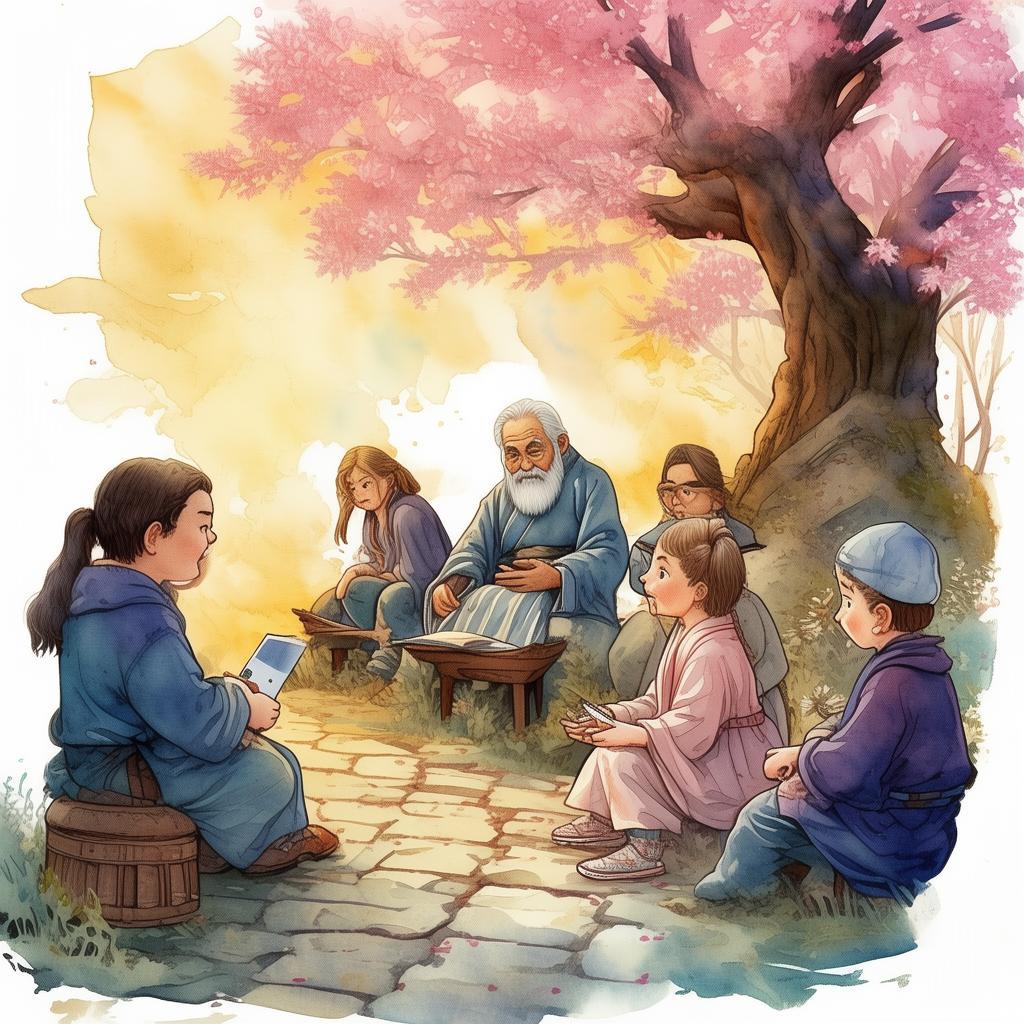
The climax of the story came when Ming stood before the village assembly, surrounded by the elders and villagers. He spoke of his journey, the wisdom of the Antonym's Advocate, and the truth behind the "Paradox of Virtue." As he spoke, the elder Hong's face, a mask of virtue, began to crumble, revealing a cunning, power-hungry man beneath.
The village was stunned, and the elder Hong was banished from the village. Ming was finally cleared of all charges, and the village realized that virtue, while a noble trait, could also be used against those who possess it. Ming returned to the village, his name now synonymous with a cautionary tale of the dangers of virtue misplaced.
The story of Ming and the Jade of Enlightenment spread far and wide, a parable that resonated with many. It became known as "The Paradox of Virtue," a tale that taught that true virtue is not about the absence of vice but about the presence of wisdom to discern between the two. And so, Ming's name was remembered not as a man framed for a crime, but as a symbol of the complexity of virtue in a world where good and evil are often reversed.
✨ Original Statement ✨
All articles published on this website (including but not limited to text, images, videos, and other content) are original or authorized for reposting and are protected by relevant laws. Without the explicit written permission of this website, no individual or organization may copy, modify, repost, or use the content for commercial purposes.
If you need to quote or cooperate, please contact this site for authorization. We reserve the right to pursue legal responsibility for any unauthorized use.
Hereby declared.
